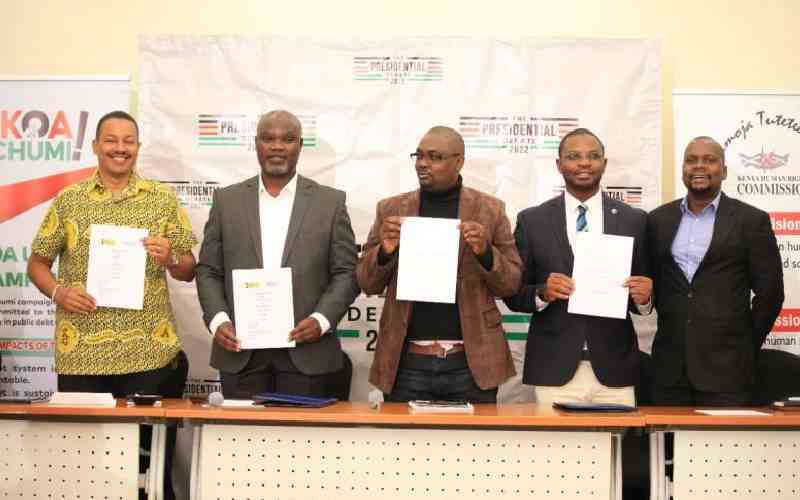×
The Standard e-Paper
Fearless, Trusted News

Kenyans will be treated to a different kind of presidential debate following a review of guidelines that will allow citizens to engage the candidates.
Yesterday, the Head of Presidential Debate 2022 Secretariat Clifford Machoka said the debate was crucial in sifting chaff uttered in political rallies and giving Kenyans opportunity to see their aspiring leaders argue out issues.